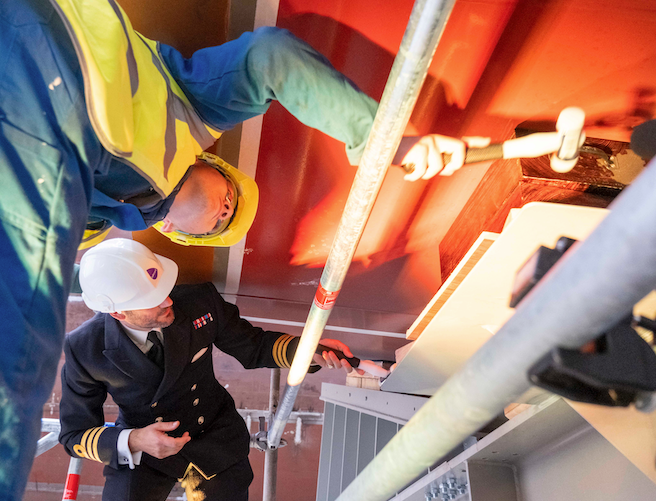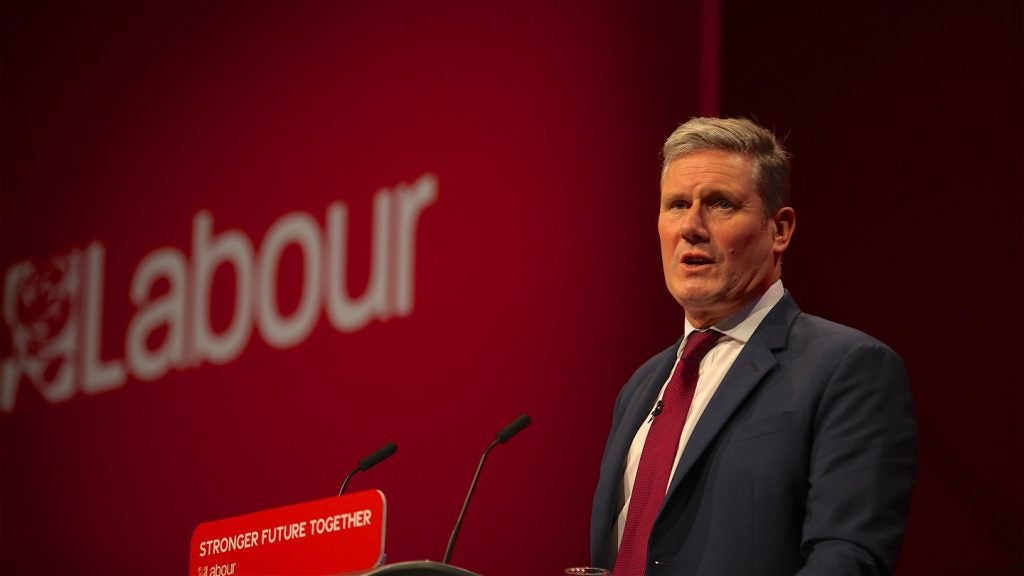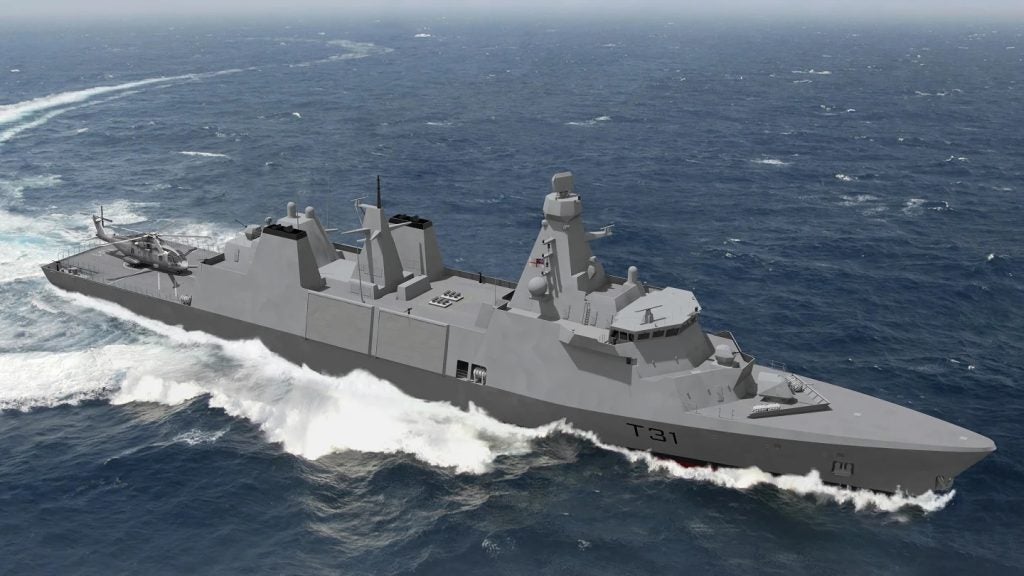
“Fundamentally…the world has changed from the point we signed the contract,” said John Howie, Babcock’s Chief Corporate Affairs Officer and Interim CEO Marine, at the keel-laying ceremony in Rosyth on 17 September for HMS Active, the second of the Royal Navy Type 31 frigates Babcock have begun to construct as part of a five vessel contract.
Babcock is in a Dispute Resolution Process (DRP) with the UK Ministry of Defence (MoD) to try to determine whether increases in the cost of the production should be carried by Babcock or come from the UK’s defence budget.
The contract for these Inspiration-Class frigates was awarded in 2019 for an average production cost of £250m per ship, according to a statement from Babcock in April 2023, which goes on to claim that ‘additional forecast costs resulting from certain material macroeconomic changes’ require the one-off payment of £50m to £100m to cover the duration of the contract.
Justified dispute
Howie cites the rise in inflation, issues in material supplies, and the war in Ukraine as driving the increase in the cost of production for the five frigates that is at the heart of the dispute between Babcock and the UK MoD.
“The reality is the MoD is a contracting authority, we’re a supplier, we sometimes will have a different interpretation for the contract with the customer, and we have a debate about it, and it will get resolved,” said Howie.
Tristan Sauer, defence and aerospace analyst at GlobalData, believes that while the Babcock’s arguments will “certainly rankle” the MoD, the undeniable impact of global inflationary pressures on supply chains and operations costs “provide the firm with a baseline justification for this demand.”
How well do you really know your competitors?
Access the most comprehensive Company Profiles on the market, powered by GlobalData. Save hours of research. Gain competitive edge.

Thank you!
Your download email will arrive shortly
Not ready to buy yet? Download a free sample
We are confident about the unique quality of our Company Profiles. However, we want you to make the most beneficial decision for your business, so we offer a free sample that you can download by submitting the below form
By GlobalDataAs Sauer points out, Babcock have a good basis to challenge the MoD on the costs and the projected cost-estimates for the Type 31e have been challenged by the Royal Navy in the past, with Admiral Lord Alan West stating in 2019 that the more realistic cost would amount to £350m-£400m.
“It would seem that the MoD had anticipated these issues and will likely need to make concessions to Babcock.”
Tristan Sauer, GlobalData defence and aerospace analyst.
“Other MoD and RN officials have also made comments over the preceding years raising concerns around the projected costs and their potential impact of the Type 31e’s capabilities,” says Sauer, “with discussions from 2019-2020 raising the possibility of reducing purchases of supporting equipment in order to maintain the £250m per ship price tag.
“Consequently, it would seem that the MoD had anticipated these issues and will likely need to make concessions to Babcock, though the unique circumstances surrounding pricing in this procurement agreement mean this case likely isn’t indicative of a wider trend within the defence sector.”
The DRP may lead to an arbitration, with the intention of resolving whether Babcock or the MoD are responsible for for the unforeseen increases in the cost of the contract to the supplier. “We’re not going to fall out,” continues Howie, making assurances to the healthy relationship between the Naval supplier and the UK. “We’re having what I would say is a constructive dialogue with the MoD, recognising that they are very clear on the contract they signed. We’ve got a view on some of the matters around that, and it will get fixed. And I imagine that will be sooner rather than later.”
Type 31 frigate requirement
The Inspiration-Class Type 31 build ships are intended to quickly deliver five general purpose frigates into Royal Navy service to replace five outgoing, and ageing, Type 23 vessels.
According to the UK’s shipbuilding programme, five Type 31 Inspiration-class general-purpose frigates will be introduced into Royal Navy service from 2027, with Babcock completing the handover of the fifth and final vessel the following year.
The Type 31 class was born from the realisation by the UK MoD that it could not afford to acquire 13 Type 26 anti-submarine warfare frigates from UK defence prime BAE Systems, instead constraining that programme to eight hulls. A stop-start competition to determine an alternative five-ship frigate requirement was won by Babcock using its Arrowhead 140 design, heavily derived from the Danish Iver Huitfeldt-class frigates.
“Type 31 is an incredibly important programme for Babcock, our Royal Navy and Ministry of Defence customer and for the wider UK Shipbuilding industry,” said Howie during the keel laying ceremony for HMS Active. “Today we see first-hand the dedication and commitment from our team here in Rosyth, and we are hugely proud to be able to share this traditional ceremony and programme milestone for HMS Active with our customer, families and friends.”
The keel-laying ceremony took place in the company’s Venturer Hall, at its Rosyth facility. Venturer Hall is an enclosed shipyard, that spokespeople for the company attribute with reducing the challenges of construction. As a marker of its benefits, Babcock have recently sold the shipyard model, Arrowyard, to polish defence company PGZ, who will be constructing a single shipyard of the same design as the Venturer building, with the same shipyard machinery. PGZ and Babcock finalised a strategic cooperation agreement in 2022 for the MIECZNIK frigate programme.
Additional reporting from Richard Thomas.







